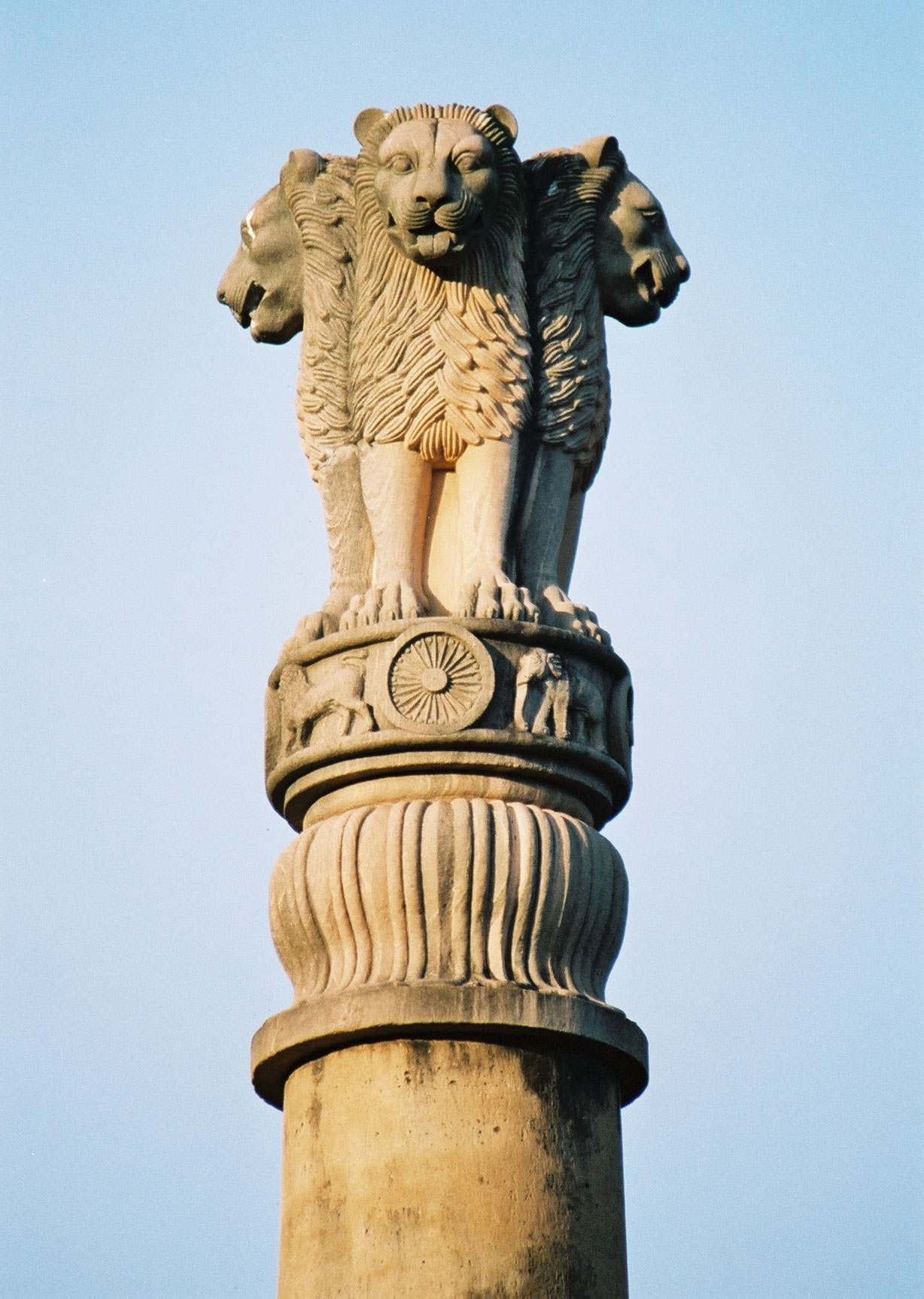
Sanchi Stupa Old World Heritage
The renovated Stupa and Ashoka pillar along with a huge golden statue of Buddha was consecrated by Gyalwang Drukpa, the spiritual head of Drukpa lineage of Buddhism based in Ladakh, on Tuesday.
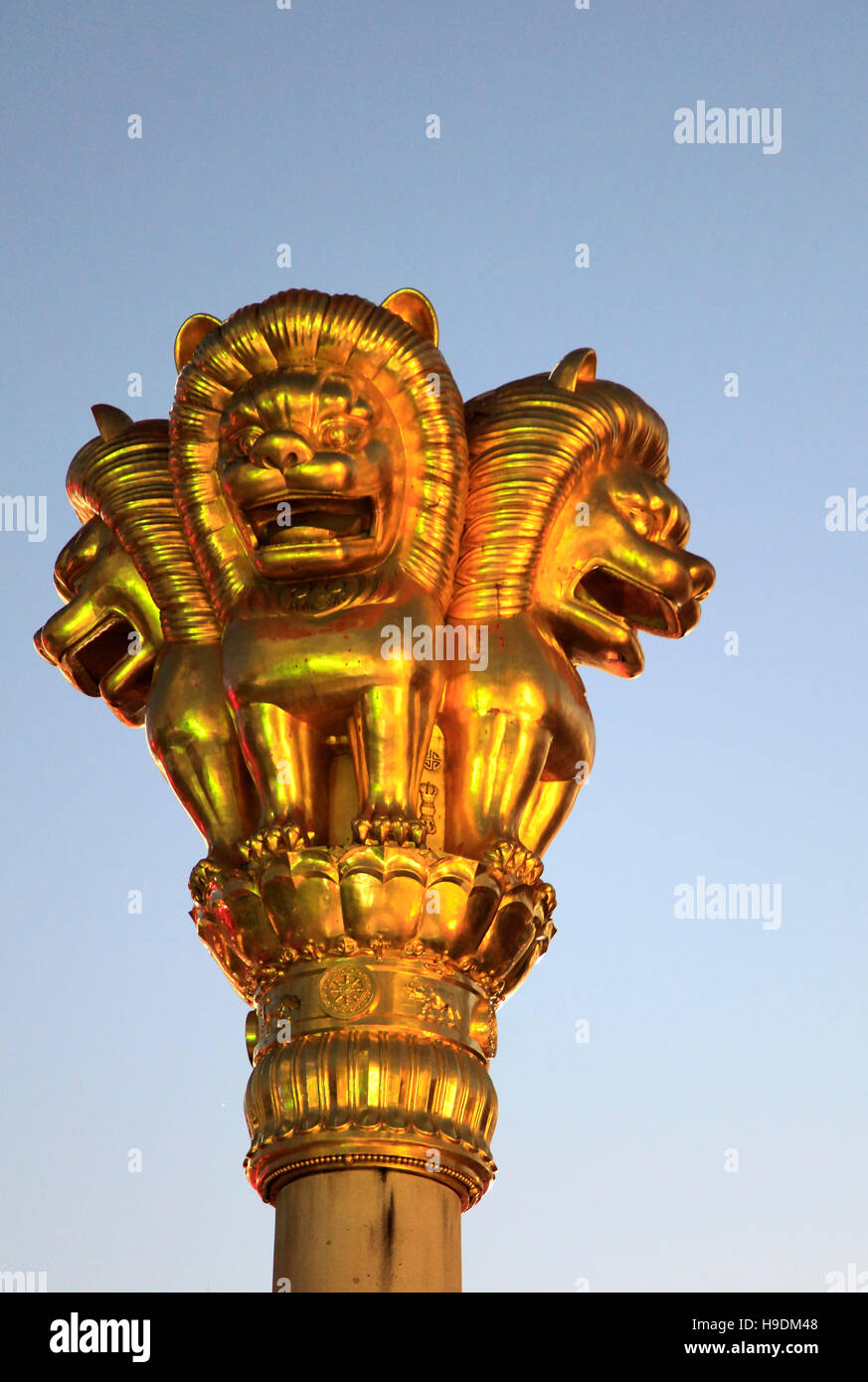
China, Shanghai, Jing'an Temple, Ashoka Pillar Stock Photo Alamy
Ashoka's most famous pillar was erected at Sarnath, in the state of Uttar Pradesh in northern India. The site is revered among Buddhist pilgrims as the spot where the Buddha gave his first.

Ashok Pillar Ashoka pillar, Asoka pillar, Buddha sculpture
A 2000-year-old lost Stupa, one of the 19 built with Lord Buddha's relics sent by Emperor Ashoka to China, has been renovated and restored with religious rites by an Indian monk in this remote Tibetan town, making it a symbol of the advent of Buddhism from India to China. The renovated Stupa and Ashoka pillar along with a huge golden statue of Buddha was consecrated by Gyalwang Drukpa, the.
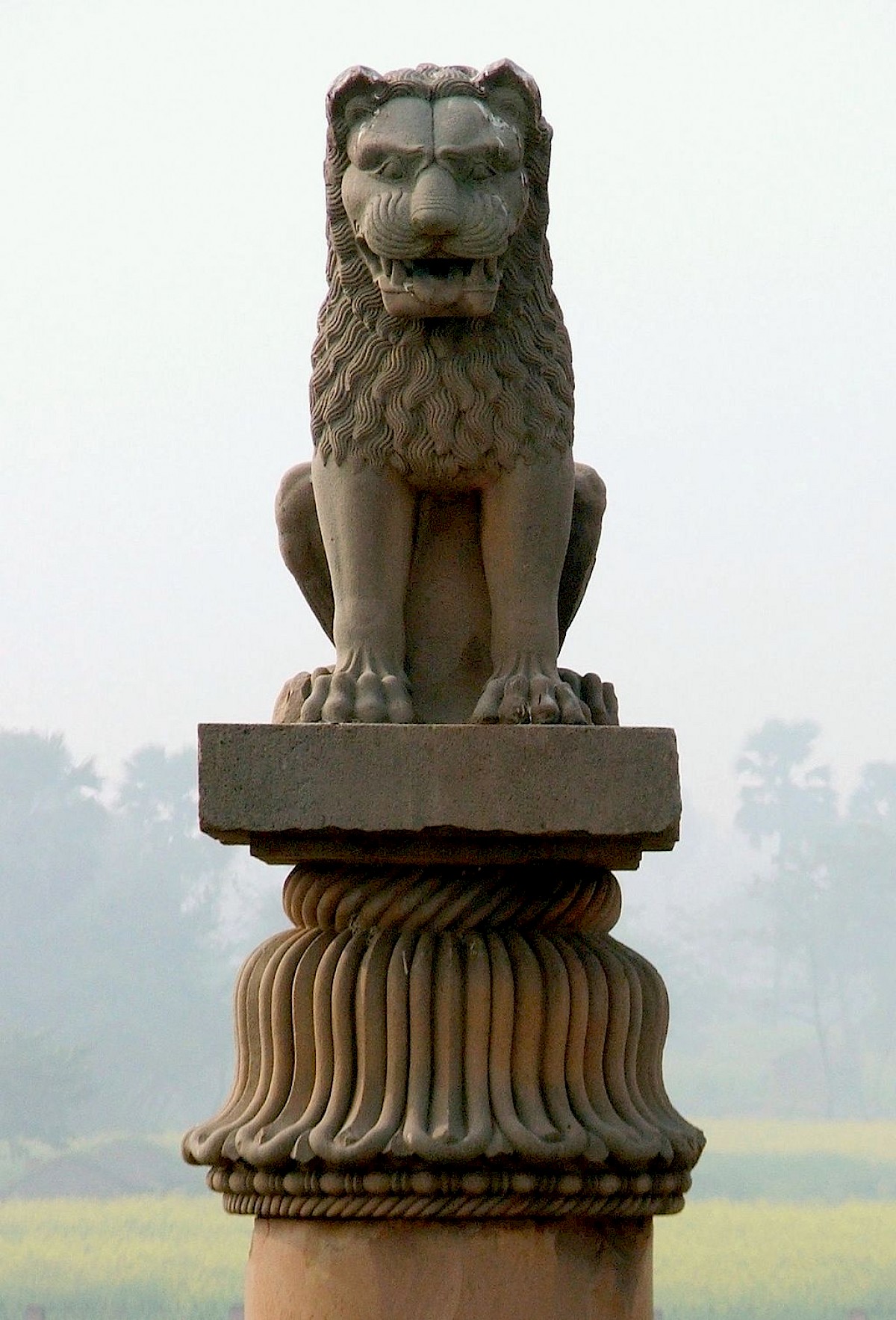
Ashoka Pillar, India Obelisk Art History
2,000-year-old Ashoka Stupa restored in remote China. A symbol of the advent of Buddhism from India to China, the renovated Stupa and Ashoka pillar along with a huge golden statue of Buddha was consecrated by Gyalwang Drukpa, the spiritual head of Drukpa lineage of Buddhism based in Ladakh, on Tuesday in China's Qinghai province, located.

Ashoka Kids Britannica Kids Homework Help
The renovated stupa and Ashoka pillar along with a huge golden statue of Buddha was consecrated by Gyalwang Drukpa, the spiritual head of Drukpa lineage of Buddhism based in Ladakh, on Tuesday in China's Qinghai province, located adjacent to Tibet Autonomous Region.

FileAshoka's Pillar, Vaishali.jpg Wikimedia Commons
The pillars of Ashoka are a series of monolithic pillars dispersed throughout the Indian subcontinent, erected—or at least inscribed with edicts —by the 3rd Mauryan Emperor Ashoka the Great, who reigned from c. 268 to 232 BC. [2]

💋 Ashoka china. China. 20221104
The Ashoka Pillar in Sarnath is located within the premises of the Dhamek Stupa complex in Sarnath, Uttar Pradesh, India. Sarnath is a significant pilgrimage site for Buddhists, about 10 kilometers northeast of Varanasi.
The Ashoka Pillars in China. r/IndiaSpeaks
A replica of the Ashoka pillar and golden statue of Buddha were added to the structure. The restoration process started in 2007 under the joint supervision of Chinese authorities and Gyalwang Drukpa, the head of the Drukpa Buddhism lineage, which follows the Mahayana Buddhist tradition.
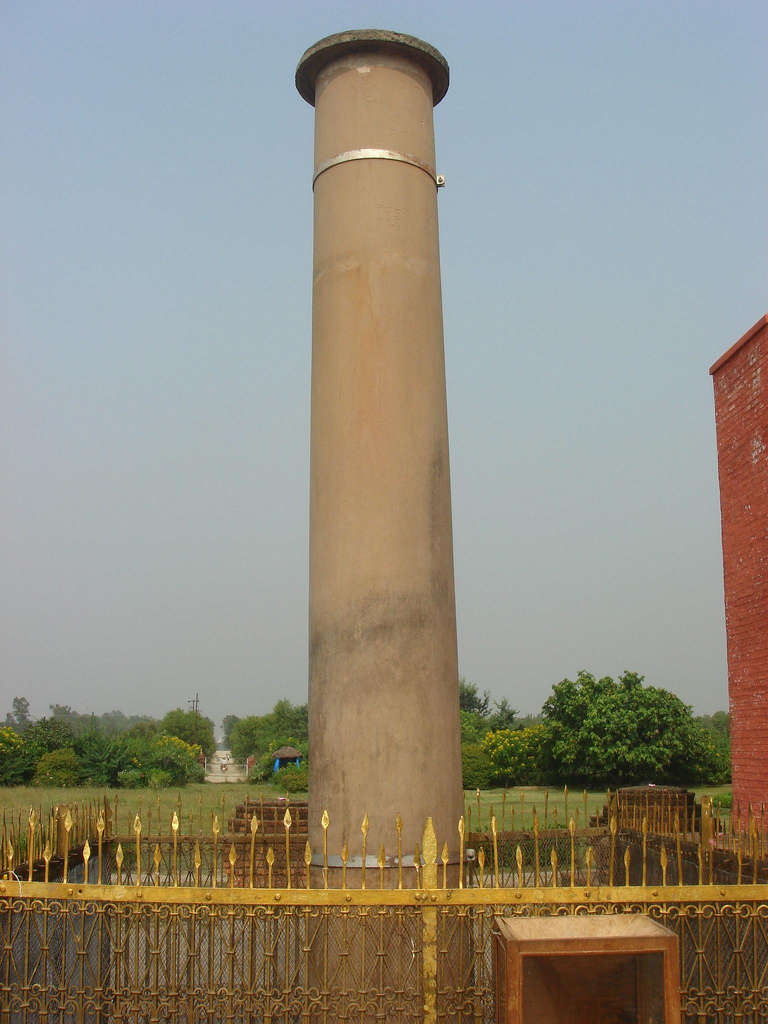
Ashoka's pillar some exciting facts that we may not know!! Navrang India
The pillars vary from 40 to 50 feet in height. They are cut from two different types of stone—one for the shaft and another for the capital. The shaft was almost always cut from a single piece of stone. Laborers cut and dragged the stone from quarries in Mathura and Chunar, located in the northern part of India within Ashoka's empire.

Pillars Of Ashoka Wallpapers Wallpaper Cave
HH the 12th Gyalwang Drukpa. From bellbajao.org. A restored 2,000-year-old stupa that is believed to have been commissioned by the ancient Indian emperor Ashoka (r. c. 269-232 BCE) in Nangchen County, Yushu Tibetan Autonomous Prefecture in China's Qinghai Province, is to be unveiled on Tuesday by the spiritual head of the Drukpa Kagyu.

Ashoka Pillars Encyclopedia of Art Monument
Temple of King Ashoka ( Chinese: 阿育王寺; pinyin: Āyùwāng Sì) is a Buddhist temple located in Yinzhou District of Ningbo, Zhejiang, China. [1] [2] History Shanmen at the temple. The Buddhist Texts Library at the temple. The Hall of Guru at the temple. Western Jin dynasty
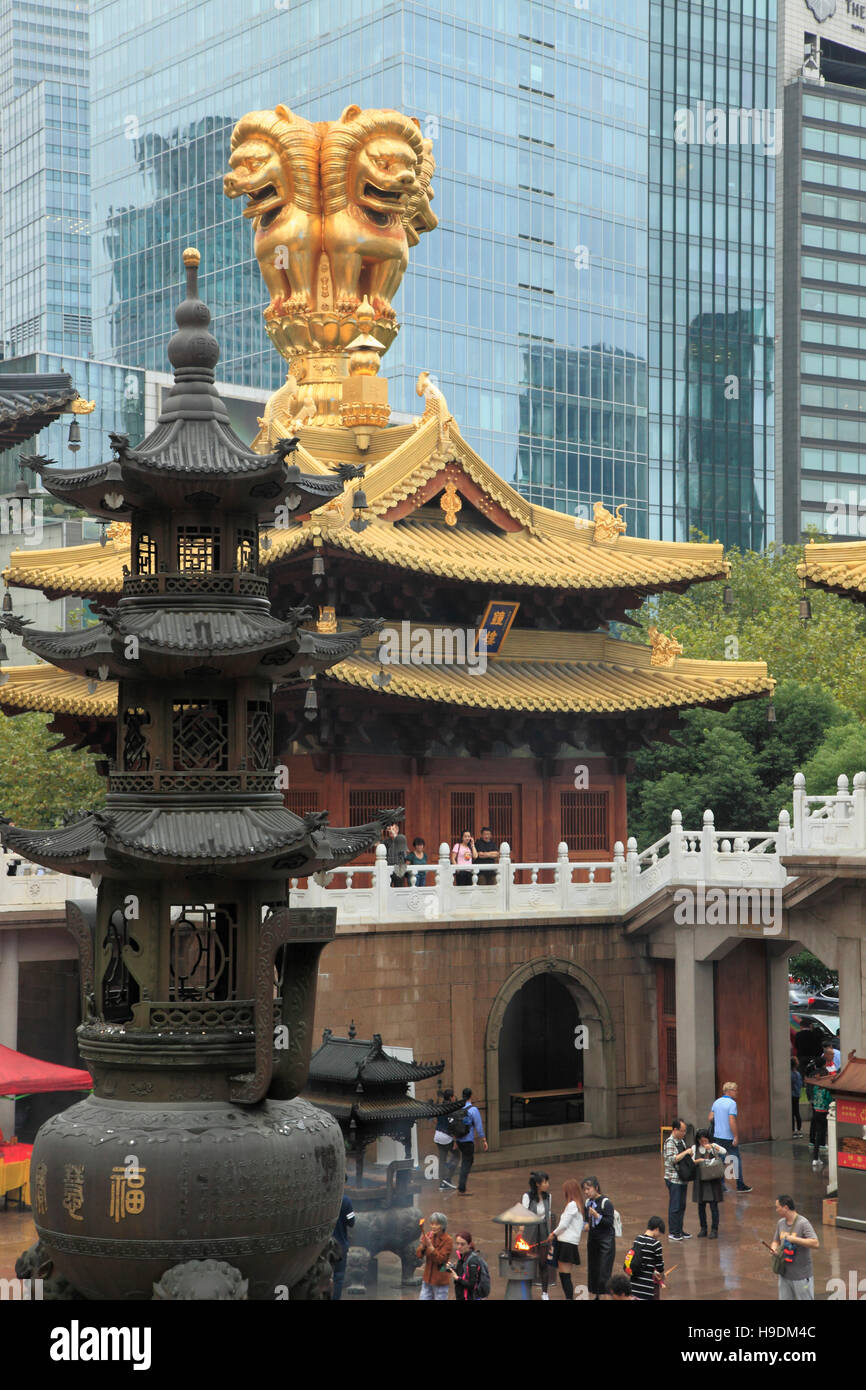
China, Shanghai, Jing'an Temple, Ashoka Pillar Stock Photo 126305660 Alamy
But the unveiling of a renovated Buddhist stupa said to be commissioned by king Ashoka 2000 years ago in China's Qinghai province could well contribute to strengthening cultural links between.

Ashoka pillar in China Replica of Ashoka pillar. Ashoka th… Flickr
Pillars of Ashoka. The pillars of Ashoka are a series of monolithic columns dispersed throughout the Indian subcontinent, erected or at least inscribed with edicts by the Mauryan Emperor Ashoka during his reign from c. 268 to 232 BCE. [1] Ashoka used the expression Dhaṃma thaṃbhā ("pillars of the Dharma ") to describe his own pillars. [2] [3]

Ashoka's pillar (Illustration) World History Encyclopedia
The third emperor of the Mauryan dynasty, Ashoka (pronounced Ashoke), who ruled from c. 279 B.C.E. - 232 B.C.E., is widely believed to be the first leader to accept Buddhism and thus the first major patron of Buddhist art.
The Ashoka Pillars in China. r/IndiaSpeaks
The Edicts of Ashoka are 33 inscriptions engraved on pillars, large stones, and cave walls by Ashoka the Great (r. 268-232 BCE), the third king of the Mauryan Empire (322-185 BCE) of India.One set, the so-called Major Rock Edicts, are consistent in their message that the people should adhere to the concept of Dhamma, defined as "right behavior", "good conduct" and "decency toward.
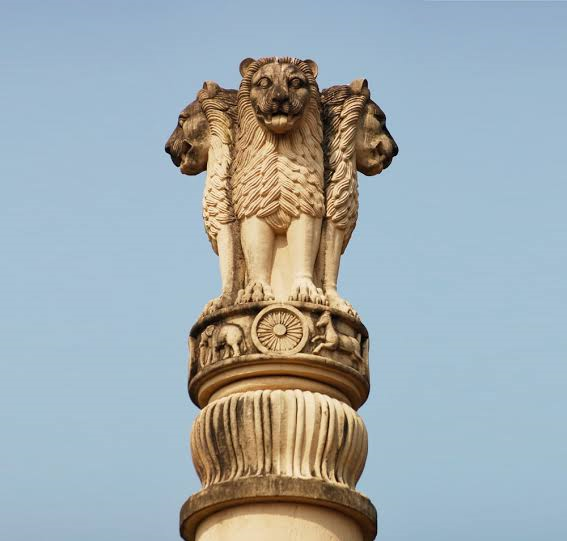
AshokaPillar Humsari
The renovated stupa and Ashoka pillar along with a huge golden statue of Buddha was consecrated by Gyalwang Drukpa, the spiritual head of Drukpa lineage of Buddhism based in Ladakh, on Tuesday in China's Qinghai province, located adjacent to Tibet Autonomous Region.